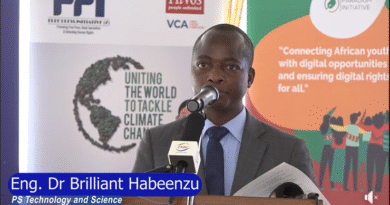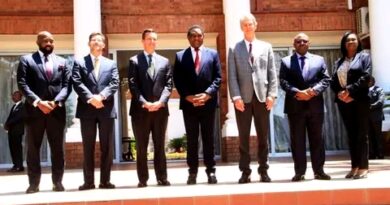Zambia and Zimbabwe Unite to Drive Africa’s Digital Future at 2025 CSZ Conference
Regional leaders gathered this week at the 2025 Computer Society of Zimbabwe (CSZ) Conference in Livingstone to advance a shared vision for Africa’s digital transformation, focusing on collaboration, digital sovereignty, and the strategic deployment of Artificial Intelligence (AI).
The conference provided a platform for both nations to outline bold national and continental digital agendas. Zimbabwe’s Minister of Telecommunications and Postal Services, Hon. Tatenda Mavetera, presented the country’s newly finalised National AI Strategy, which aims to create a “smart, secure, and connected society.” The strategy emphasises that AI should enhance human capabilities rather than replace them.
“We cannot afford to be mere consumers of technology. We must be creators,” said Minister Mavetera. “We want to create AI that meets ethical standards and serves the specific needs of our country.”
Key initiatives include a $1.5 million digital skills programme aligned with the African Union’s agenda, a target to train 1.5 million coders nationwide, and the operationalisation of the Cyber and Data Protection Act alongside a finalised National Cybersecurity Strategy to safeguard digital sovereignty.
Responding to Zimbabwe’s plans, Zambia’s Minister of Technology and Science, Hon. Felix Mutati, highlighted the countries’ historical ties and geographical connection via the Zambezi River as critical to regional digital transformation. Guided by President Hakainde Hichilema’s vision, Zambia is prioritising digital platforms to accelerate growth, improve economic measurement, and enhance public service delivery.
Minister Mutati stressed the importance of professional associations as “key stewards” in bridging the digital skills gap. Zambia’s current digital skills penetration stands at 34 percent, prompting the government to introduce measures including a revised Data Protection Act, an Innovation and Inventors’ Bill with a venture capital fund, and a local content regulation reserving 20 percent of business in digital transactions within the mining sector for local companies.
Both ministers highlighted regional integration, citing collaboration with Malawi and Botswana and the success of One-Stop Border Posts (OSBPs), such as the Chirundu OSBP (Zambia-Zimbabwe) and Mwami-Mchinji OSBP (Zambia-Malawi), which facilitate continuous trade, reduce costs, and strengthen the economic bloc.
“Africa must thrive while others move. We need to foster shared growth and development across the region. Let’s bring ideas back home and let’s remain connected,” concluded Minister Mavetera.
The conference highlighted the commitment of Zambia and Zimbabwe to lead the continent in digital innovation, regional cooperation, and AI-driven economic growth.



